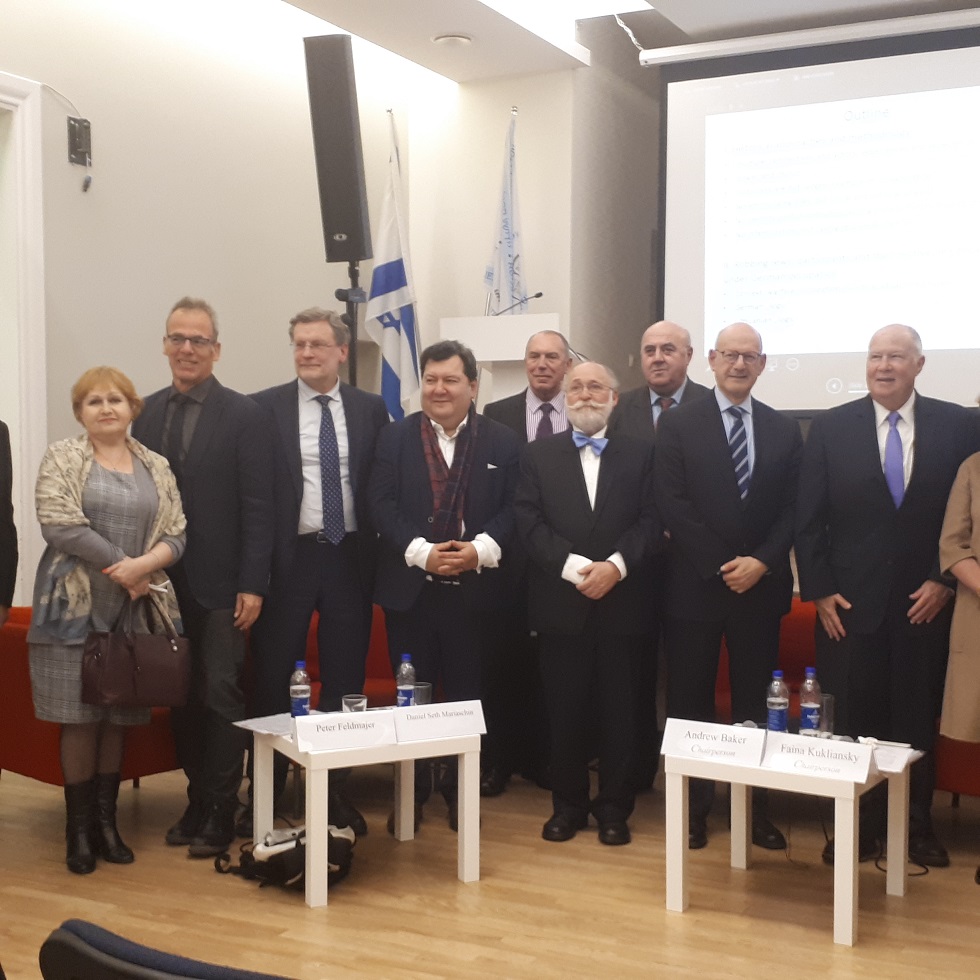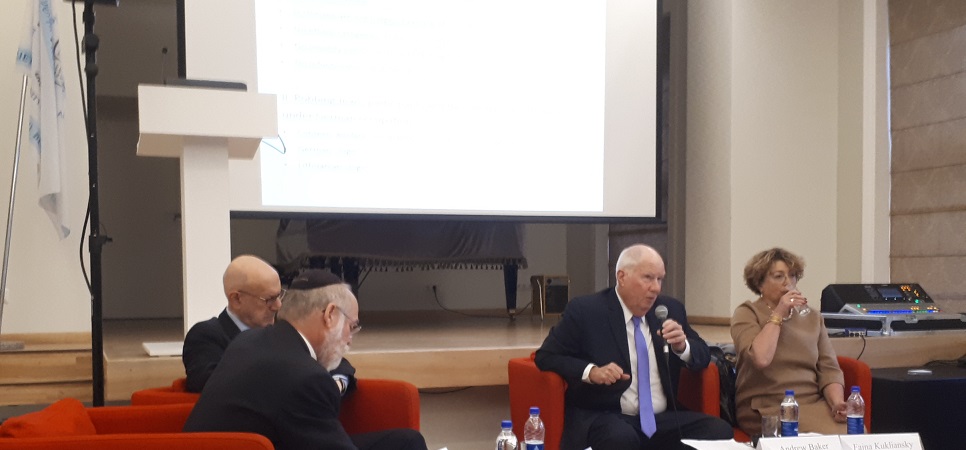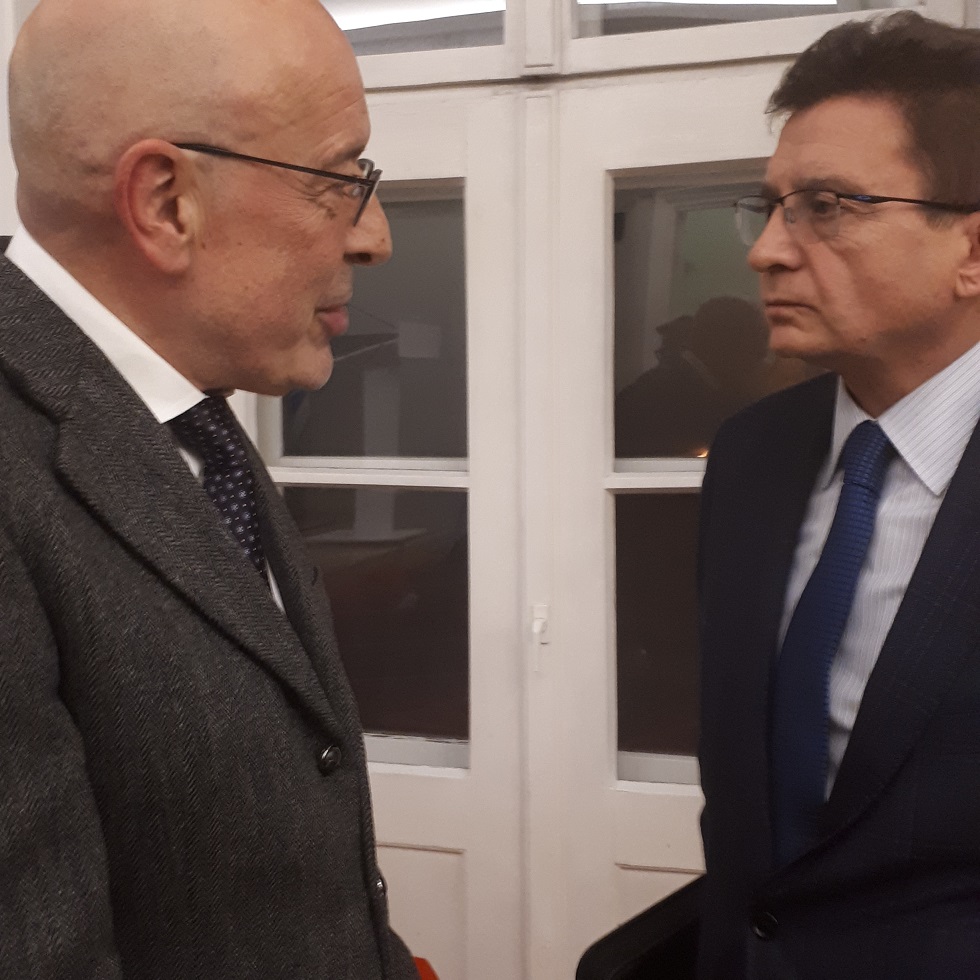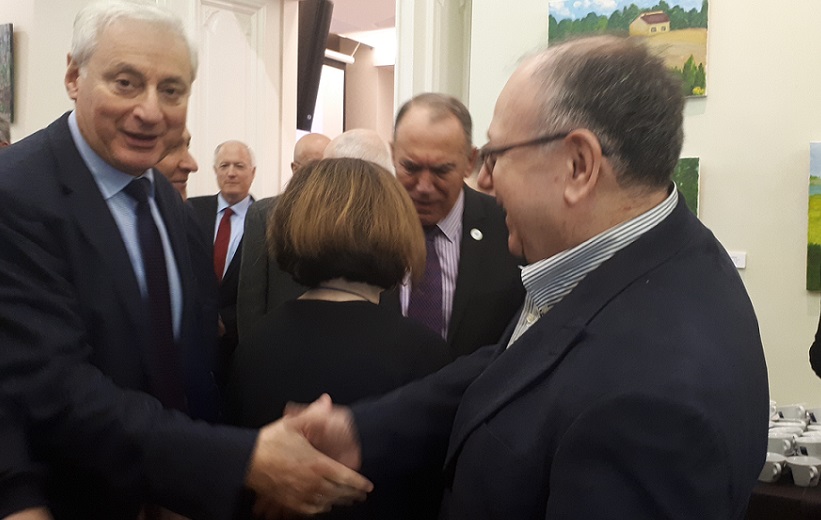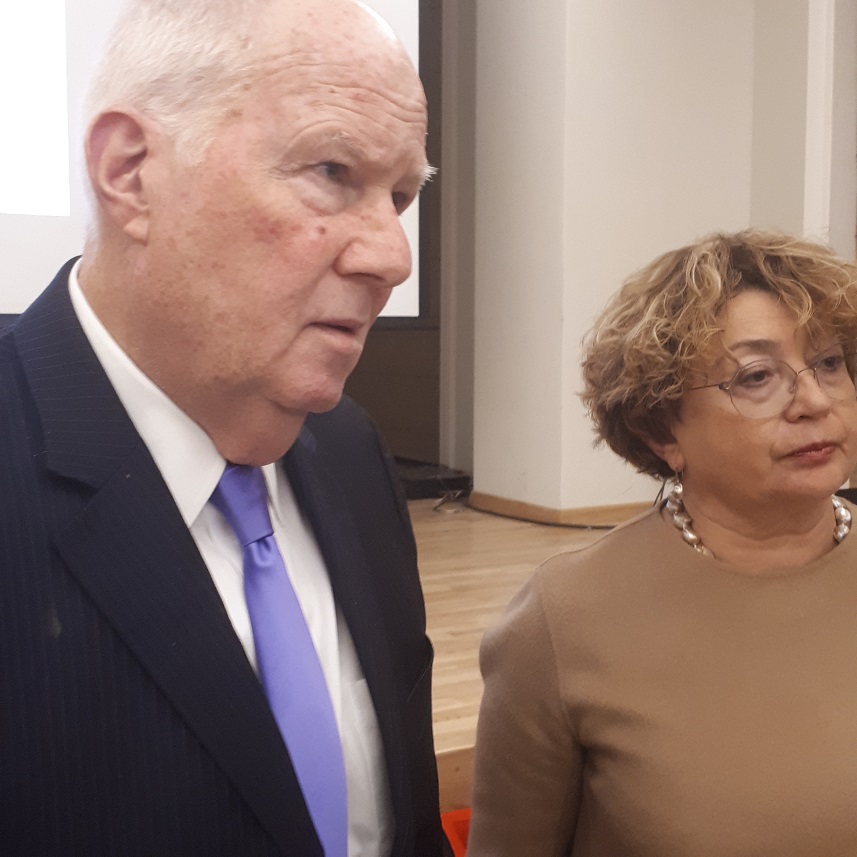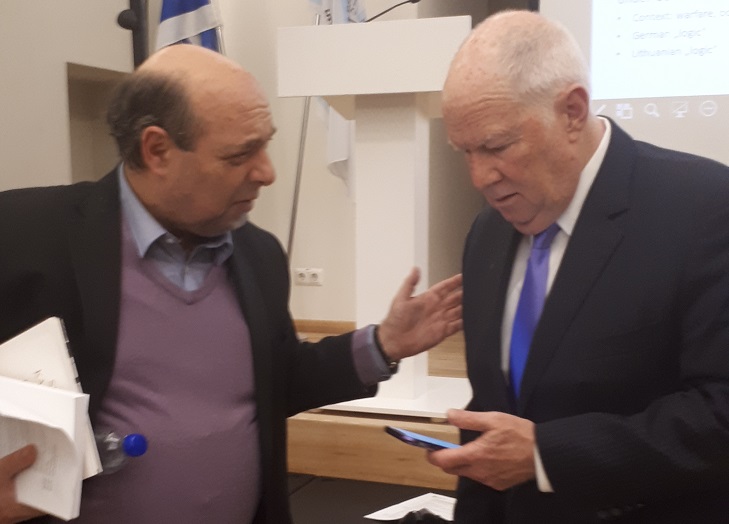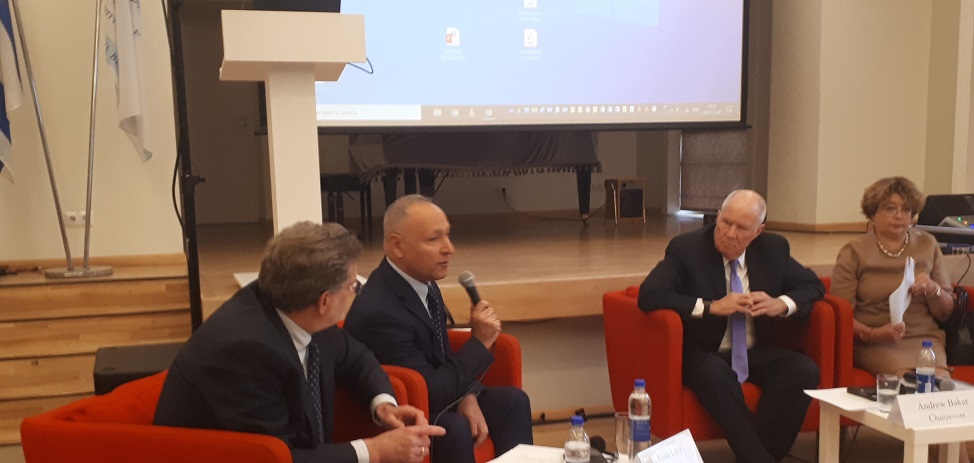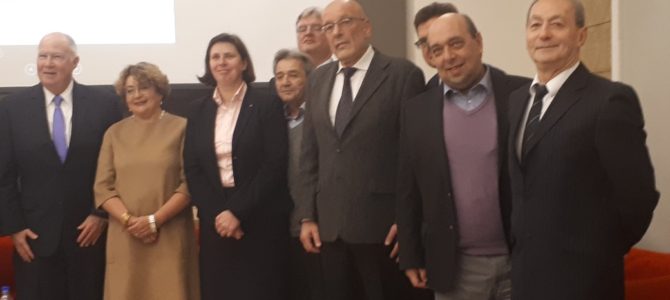Marking the 10th anniversary of the Terezin declaration, the Lithuanian Jewish Community hosted a regional conference on Holocaust restitution issues Monday.
The conference covered experience of communities in other European countries in the return of Jewish property stolen during the Holocaust. Renowned Holocaust historians and others gave presentations and spoke on the past and goals and tasks for the future.
Rabbi Andrew Baker, director of international Jewish affairs at the American Jewish Committee, knows the issues in Lithuania well. He was a participant in Lithuania’s road towards restitution and the small country’s historic decision in 2011 to pay compensation worth 37 million euros to be used to support Jewish community life. The Goodwill Foundation was formed then to manage these monies. Baker spoke about class-actions suits brought by attorneys representing Jews in America. He noted Austria and France have solved the problem of property restitution. Austria has paid out compensation for pre-war property and France has done the same.
Baker said Jewish property is categorized as communal, private and heirless. He also said every country is pursuing its own interests, and that most of the countries where Jews suffered under the Holocaust sought to become EU and NATO members after the fall of the Berlin Wall. To do so, they had to confront their histories, and many did so with help from the USA, he said. That’s when restitution of Jewish property issues began to move faster in Lithuania.
The issue of private property hasn’t been addressed yet in Lithuania, LJC chairwoman Faina Kukliansky said. Lithuanian Jews living abroad were prevented from applying for the return of properties because they didn’t have the right to Lithuanian citizenship, she noted.
Jewish community leaders from Slovenia, Croatia, Latvia, the Czech Republic, Hungary and Poland shared their experience with property restitution, broken promises from governments, postponement of court cases and prospects for new legislation on restitution procedures.
The rule which seemed to emerge was that the more democratic the country, the fewer obstacles there are for restitution and justice for Jews who suffered under the Nazi regime.
Lithuania’s Jews are still waiting for the Government’s position, decision and clarity on the amount of restitution and which people will have the right to claim one kind of property or another.
Forty-seven states signed on to the Terezin declaration in Prague in 2009 setting out the principles for European Jews to get their property back.
Given the similar experience of obstacles placed in the path of the majority of European Jewish communities, participants at the conference said the meeting held on the 10th anniversary of the Terezin declaration was encouraging and a reason not to give up, suggesting the issue of Jewish property restitution should be part of the agenda at the European Jewish Congress scheduled for 2020 in Vilnius. LJC chairwoman Kukliansky said: “It might be worthwhile to coordinate the drafting of restitution legislation.”
Israeli ambassador to Lithuania Yossi Levy said the issue of Jewish property restitution is complex but that the time had come for justice and for solving the issue. “A great Jewish community lived in Lithuania who were violently exterminated. Their homes, factories, land and forests remain throughout the country. It is not 1941 anymore, 78 years have passed since the Holocaust. We live in a different environment, and the goal of striving for justice is very important. Justice can also be symbolic. Currently the Jewish community is living on funds administered by the Goodwill Foundation. These funds are for supporting the Jewish community. Not to avoid the issue of the return of property. The Terezin declaration sets out the principles for returning private property. This isn’t just a chance to create fairness, it’s a political and moral question. Central and Eastern Europe has not yet restored justice. We are speaking with the Lithuanian institutions with an open heart,” ambassador Levy said.
